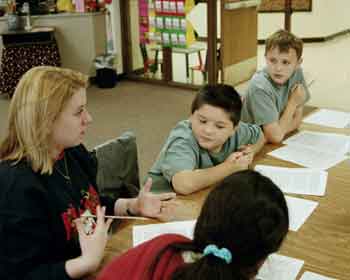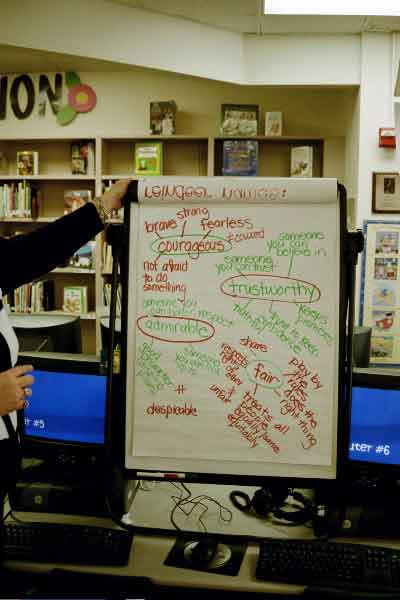| Research Cycle |
|
|
| Vol 2|No 4|March|2006 | |
|
Please feel free to e-mail this article to a friend, a principal, a parent, a colleague, a teacher librarian, a college professor, a poet, a magician, a vendor, an artist, a juggler, a student, a news reporter or anyone you think might enjoy it. Other transmissions and duplications not permitted. (See copyright statement below).
|
||||
|
. Copyright Policy: Materials published in The Question Mark may be duplicated in hard copy format if unchanged in format and content for educational, nonprofit school district and university use only and may also be sent from person to person by email. This copyright statement must be included. All other uses, transmissions and duplications are prohibited unless permission is granted expressly. Showing these pages remotely through frames is not permitted. FNO is applying for formal copyright registration for articles. Unauthorized abridgements are illegal.
|
 The Question Mark
The Question Mark 

